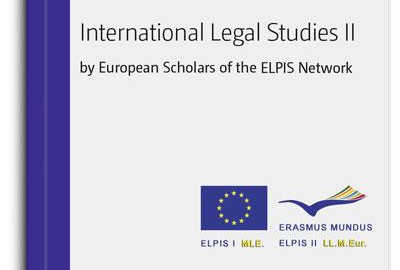This second volume of International Legal Studies (ILeS) is a successor to the first edition of ILeS, which was issued and published in 2009. It contains a collection of articles contributed by various European and international scholars, deriving from lectures, which were given in three languages at academic events of the ELPIS Law faculty network between 2009 and 2012. Many of these contributions were delivered to an audience of European academics as part of the annual symposium, which precedes the graduation ceremony for the participants of the “European Legal Practice LL.M. joint degree” (ELPIS II) programme. Dr Boris Balog (Bratislava) gives a deeper insight into the Slovakian version of a constitutionallybalanced budget provision; an area, which has been significantly influenced by the respective German instrument. Historical understanding of the ELPIS network itself is contributed by Prof. Sylvia Calmes-Brunet (Rouen). Meanwhile, the General Prosecutor and Professor at the faculty of Law of UNIPLAC (Brazil), Diaulas Costa Ribeiro, focuses on the Latin American view upon the subject of urban and domestic violence. Professor Hilmar Fenge (Hanover) analyses how the divergences between European legal systems have caused undesired obstacles to the process of further European harmonization. Prof. Carsten Momsen (Hanover) questions the lawfulness of a dismissal based on whistle-blowing and thereby also touches – lato sensu – on aspects of social law. A further approach to the latter subject is given by Prof. Carole Nivard (Rouen) about the European Social Charter in toto. Another European topic regarding the inconspicuous European Union Civil Service Tribunal is presented by Dr Dimitrios Parashu (Hanover). His further article provides comparative insights into constitutional developments in Indonesia and the Federal Republic of Germany. Prof. Reinhard Pauling (Würzburg/Tiflis) analyses the status quo of parliamentary practice in Strasbourg, a field of his own practical expertise, while Prof. Vasco Pereira da Silva (Lisbon) offers a grand view on administrative law in Europe with a specific focus on Portuguese developments. PD Dr Klaus Zapka (Göttingen) analyses certain elements of the European Court of Justice’s judicature and considers its economic function within the development of the Union. The renowned criminologist Prof. Bernd-Dieter Meier (Hanover) provides a deep reflection upon public reception of the death penalty. Meanwhile, Prof. Bernd Oppermann focuses on the issue of the borderline between consumer protection and European markets law.
Take a look inside: http://www.universitaetsverlag-halle-wittenberg.de/media/upload/file/Inhaltsverzeichnisse/066-6-inhalt.pdf
| Autor | Oppermann, Bernd H. (Hg.) |
